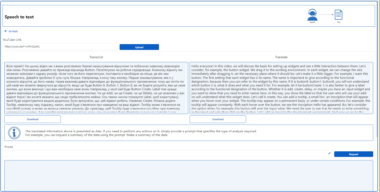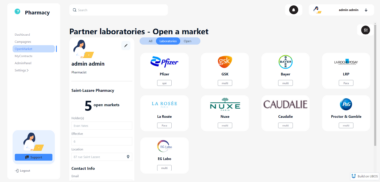 Kibana MCP (Model Context Protocol) Server
Kibana MCP (Model Context Protocol) Server

A powerful server that provides seamless access to Kibana logs through a convenient API, designed to work with Machine Control Protocol (MCP) and a standard HTTP interface.
 Table of Contents
Table of Contents
- Overview
- Features
- Setup
- Prerequisites
- Installation
- Configuration
- Authentication
- Running the Server
- API Reference
- Endpoints
- Parameters
- Example Usage
- Troubleshooting
- Architecture
- AI Integration
- License
 Overview
Overview
This project bridges the gap between your applications and Kibana logs by providing:
- A Kibana log access server using the MCP protocol
- HTTP API endpoints for log search and analysis
- Tools for debugging Kibana connection issues
- Fallback to mock data when Kibana is unavailable
Features
- Simple API: Easy-to-use endpoints for log searching and analysis
- Flexible Authentication: Multiple ways to provide authentication tokens
- Time-Based Searching: Support for both absolute and relative time ranges
- Pattern Analysis: Tools to identify log patterns and extract errors
- Real-Time Streaming: Monitor logs as they arrive
 Setup
Setup
Prerequisites
- Python 3.8+
- Access to a Kibana instance
- Kibana authentication token
Installation
Clone this repository:
git clone https://github.com/gaharivatsa/KIBANA_SERVER.gitCreate a virtual environment:
python -m venv venv # On macOS/Linux source venv/bin/activate # On Windows venvScriptsactivateInstall dependencies:
pip install -r requirements.txtMake the start script executable:
chmod +x ./run_kibana_mcp.sh
Configuration
- Update
config.yamlwith your Kibana connection settings - Obtain a Kibana authentication token (see Authentication)
Adapting for Your Organization
This Kibana MCP Server can be easily configured for use by any company or organization:
Update Connection Settings:
- Edit
config.yamlto point to your organization’s Kibana instance:kibana: url: "https://your-company-kibana.example.com" indices: ["your-company-logs-*"] timestamp_field: "@timestamp" # Adjust if your org uses a different field name
- Edit
Configure Authentication:
- Obtain a token from your organization’s Kibana instance
- Provide it using one of the authentication methods
Customize Index Patterns:
- Different organizations have different index naming patterns
- Update the
indicesfield inconfig.yamlto match your log indices
Adjust Field Mappings:
- If your organization uses custom field names:
field_mappings: timestamp: "your_timestamp_field_name" message: "your_message_field_name" level: "your_log_level_field_name"
- If your organization uses custom field names:
Test Your Configuration:
python test_kibana_connection.py
Once configured, all team members can use the same setup with their individual session IDs for log tracking and analysis.
 Authentication
Authentication
The server requires a valid Kibana authentication token to access logs. You have two main options:
Option 1: Environment Variable
Set the token as an environment variable:
export KIBANA_AUTH_COOKIE="your_token_here"
./run_kibana_mcp.sh
Option 2: API Authentication (Recommended)
Set the token through the API after starting the server:
curl -X POST http://localhost:8000/api/set_auth_token
-H "Content-Type: application/json"
-d '{"auth_token":"your_token_here"}'
Example with a token:
curl -X POST http://localhost:8000/api/set_auth_token
-H "Content-Type: application/json"
-d '{"auth_token":"hsjddfisdfidsiufiusf"}'
How to Get Your Authentication Token
To obtain the authentication token from your Kibana instance:
- Log in to your Kibana dashboard in a web browser
- Open browser developer tools (right-click → Inspect or press F12)
- Navigate to the “Application” tab in developer tools
- In the sidebar, select “Cookies” under “Storage”
- Look for the “pomerium” cookie (or similar authentication cookie) for your Kibana domain
- Copy the complete cookie value - this is your authentication token
Testing Your Token
Validate your token with:
python test_kibana_connection.py
If successful, you should see a list of available indices and sample logs.
 Running the Server
Running the Server
Start the HTTP server (recommended):
./run_kibana_mcp.sh
The server will be available at http://localhost:8000
 API Reference
API Reference
Endpoints
| Endpoint | Description | Method |
|---|---|---|
/api/search_logs | Search logs with a query | POST |
/api/get_recent_logs | Get the most recent logs | POST |
/api/analyze_logs | Analyze logs for patterns | POST |
/api/extract_errors | Extract error logs | POST |
/api/correlate_with_code | Correlate logs with code | POST |
/api/stream_logs_realtime | Stream logs in real-time | POST |
/api/set_auth_token | Set authentication token | POST |
Parameters
/api/search_logs Parameters
| Parameter | Type | Description | Default |
|---|---|---|---|
query_text | string | Text to search for in logs | - |
start_time | string | Start time for logs (ISO format or relative like ‘1h’) | - |
end_time | string | End time for logs (ISO format) | - |
levels | array | Log levels to include (e.g., [“error”, “warn”]) | - |
include_fields | array | Fields to include in results | - |
exclude_fields | array | Fields to exclude from results | - |
max_results | integer | Maximum number of results | 100 |
sort_by | string | Field to sort results by | “@timestamp” |
sort_order | string | Sort order (“asc” or “desc”) | “desc” |
Note: Use
start_timeandend_timefor time-based searches, nottime_range.
/api/analyze_logs Parameters
| Parameter | Type | Description | Default |
|---|---|---|---|
time_range | string | Time range to analyze (e.g., “1h”, “1d”, “7d”) | - |
group_by | string | Field to group results by | “level” |
/api/extract_errors Parameters
| Parameter | Type | Description | Default |
|---|---|---|---|
hours | integer | Number of hours to look back | 24 |
include_stack_traces | boolean | Whether to include stack traces | true |
limit | integer | Maximum number of errors to return | 10 |
 Example Usage
Example Usage
Search for logs
curl -X POST http://localhost:8000/api/search_logs
-H "Content-Type: application/json"
-d '{
"query_text": "payment error",
"max_results": 50
}'
Search logs with time range
curl -X POST http://localhost:8000/api/search_logs
-H "Content-Type: application/json"
-d '{
"query_text": "payment",
"start_time": "2025-05-25T00:00:00Z",
"end_time": "2025-05-26T00:00:00Z"
}'
Search using relative time
curl -X POST http://localhost:8000/api/search_logs
-H "Content-Type: application/json"
-d '{
"query_text": "error",
"start_time": "24h"
}'
Analyze logs
curl -X POST http://localhost:8000/api/analyze_logs
-H "Content-Type: application/json"
-d '{
"time_range": "24h",
"group_by": "level"
}'
Get recent logs
curl -X POST http://localhost:8000/api/get_recent_logs
-H "Content-Type: application/json"
-d '{
"count": 10,
"level": "ERROR"
}'
Search for specific transaction
curl -X POST http://localhost:8000/api/search_logs
-H "Content-Type: application/json"
-d '{
"query_text": "verifyPaymentAttempt",
"max_results": 1
}'
Stream logs in real-time
curl -X POST http://localhost:8000/api/stream_logs_realtime
-H "Content-Type: application/json"
-d '{
"query_text": "payment"
}'
 Troubleshooting
Troubleshooting
If you encounter issues:
Test Kibana connectivity:
python test_kibana_connection.pyCheck timestamp field issues:
- If you see “No mapping found for [timestamp]”, update the timestamp field in
config.yaml - Different indices may use different field names (
@timestamp,timestamp,start_time) - The server will attempt to auto-detect and retry without sorting if needed
- When using
sort_by, make sure the field exists in your indices
- If you see “No mapping found for [timestamp]”, update the timestamp field in
Authentication problems:
- Ensure your token is valid and not expired
- Check that you’re using the correct auth endpoint
- Verify the token format matches what Kibana expects
HTTP client issues:
- The server properly handles HTTP client lifecycle
- If you see HTTP client errors, try restarting the server
 Architecture
Architecture
The server consists of:
kibana_mcp_server.py- Main server with MCP and HTTP supportconfig.yaml- Configuration settings- Support scripts for testing and token management
 AI Integration
AI Integration
To integrate AI tools with this Kibana MCP Server, use the provided AI_rules_file.txt:
Adding to AI Tools
- Copy the contents of
AI_rules_file.txtto your AI editor or AI assistant’s custom instructions - This ensures your AI tools understand:
- How to properly format Kibana queries with session IDs
- The appropriate API endpoints for different types of log queries
- Required parameters and authentication methods
- Best practices for working with the Kibana Logs Tool
Key AI Usage Requirements
- Always request
session_idfrom users for all queries - Include
session_idin all KQL queries using format:"{session_id} AND additional_query" - Use Kibana Query Language (KQL) for all query formatting
- Set auth token first before using any other endpoint
- Parse and present results clearly in a structured format
For complete AI integration instructions, refer to the AI_rules_file.txt in the project root.
 License
License
This project is licensed under the Creative Commons Attribution-NonCommercial-NoDerivatives 4.0 International License (CC BY-NC-ND 4.0).
This license requires that reusers:
- Give appropriate credit (Attribution)
- Do not use the material for commercial purposes (NonCommercial)
- Do not distribute modified versions (NoDerivatives)
For more information, see the LICENSE file.
Kibana Log Access Server
Project Details
- gaharivatsa/KIBANA_SERVER
- Other
- Last Updated: 5/31/2025
Recomended MCP Servers

GitHub's official MCP Server
A Unity MCP server that allows MCP clients like Claude Desktop or Cursor to perform Unity Editor actions.

FalkorDB MCP Server

MCP PubMed Search Server
An AWS Serverless Application Model that operates as an MCP server via serverless AWS resources

MCP server for retrieving relevant documentation from a knowledge base
A Model Context Protocol server for Scrapybara

Lucidia-Voice-Gateway: A dynamic audio processing server leveraging Microsofts inbuilt architechture to power adaptive, real-time text-to-speech and voice interaction...
MCP server for Liveblocks.
 From vibe coding to vibe deployment. UBOS MCP turns ideas into infra with one message.
From vibe coding to vibe deployment. UBOS MCP turns ideas into infra with one message.







